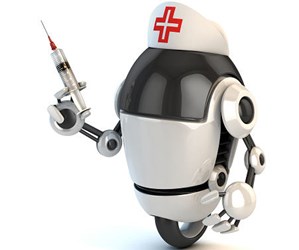Drones Burgeoning Role In Healthcare

By Katie Wike, contributing writer

The World Health Organization is partnering with a California tech company to explore the possibilities of using drones to transport medical supplies to remote regions of Bhutan.
The country of Bhutan, in South Asia, has roughly one doctor for every 3,300 people. As if that weren't problematic enough, the nation lies in the Himalayas and access to many rural areas is difficult. That’s why the World Health Organization, along with California company Matternet and the government of Bhutan, have joined forces to explore the benefits of using drones to deliver medical packages to these remote locations.
“Matternet is designed to difficult places, often where there are no roads. But it can also deliver packages in and around megacities with no problem of traffic congestion,” reports Kuensel Online, the daily news site of Bhutan.
Andreas Raptopoulos, CEO of Matternet said when introducing the drones, “The beauty of this technology is its autonomy. There’s no pilot needed to fly this vehicle. They fly using GPS waypoints from one landing station to the next. Once they arrive at a landing station, they swap battery and load automatically. This is the heart of our system … we believe that Matternet can do for the transportation of matter what the Internet did for the flow of information.”
An article in Quartz reports each of the “quadcopters” can carry a load of four pounds for as far as 20 kilometers. This weight could include medicines, blood samples, and more to be analyzed at a sophisticated lab. Matternet can currently track the flights in real-time and future plans include stations where the drones could land to take on fully charged batteries and extend flight times. The quadcopters cost between $2,000 and $5,000.
“Essentially, we see a market of civil government and commercial in terms $5.4 billion over the next decade,” says Phil Finnegan, an analyst at the Teal Group, a US-based firm that analyzes the aerospace industry. “It’s quite promising, in a lot of areas, not only in humanitarian areas but also in things like agriculture for UAVs to develop their capabilities.”
